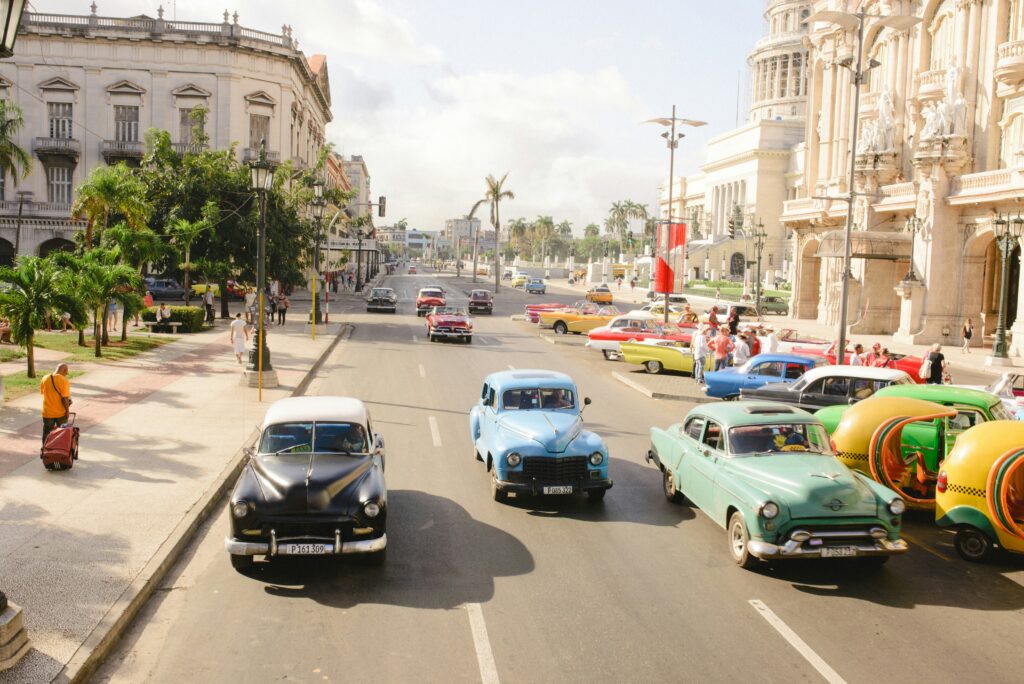
Understanding the Shortages
Cuba’s unique system has led to a situation where food and medicine shortages are not just common—they’re a reality of daily life. While this might sound daunting, understanding how these shortages affect travelers can help you prepare better and navigate the challenges.
Food Shortages: What to Expect
Imagine landing in a country known for its rich culinary history, only to find that many staples are hard to come by. In Cuba, fruits, vegetables, and even basic grains can be in short supply. Local markets often have only a limited selection of goods, and what you do find can be quite different from what you expected.
A friend of mine traveled to Havana last year and shared that availability fluctuated drastically from one day to the next. One day you might find ripe mangoes; the next, just a handful of withered tomatoes. So, here’s a practical tip: play it safe with meals. Opt for restaurants that prepare local dishes with whatever they have—this way, you’re more likely to experience the true flavors of Cuba while also supporting local businesses.
Medical Supplies: The Basics
While Cuba boasts a well-respected healthcare system, the reality is that shortages also extend to medical supplies. Over-the-counter medications can be scarce, and certain prescribed drugs might be difficult to find. This isn’t just a Cuban issue; many travelers face similar challenges, especially those who need specific medications.
Make sure you pack your own supply of necessary prescriptions. Bring ample quantities, and if you’re on specific medication, it might be wise to carry a note from your doctor explaining what it is and why you need it. Trust me, this little piece of paper can save you a lot of trouble.
Planning Ahead: Tips for Your Trip
Seeing Cuba through the eyes of local folks can be incredible, but being prepared can enhance your experience. Here are a few practical suggestions to keep in mind.
Bring Your Own Essentials
Traveling to Cuba means packing wisely. Bring along any medications you might need, as well as a small pharmacy kit. Think of OTC meds like pain relievers, antihistamines, and cold medications. Even basic items like tampons and deodorant may be in short supply, so consider bringing those too.
A traveler I met once pointed out the importance of having travel-sized containers for liquid items. It saves space and makes your luggage lighter.
Eating Out: Finding Quality Meals
Eating in Cuba can be both a pleasure and a challenge. While some restaurants are fantastic, others may struggle with sourcing fresh ingredients. Seek out paladares—privately owned restaurants. They often have a menu that changes based on what’s available that day. Yelp and TripAdvisor can help you identify popular spots that locals love. Just be prepared for the food experience to be a bit different than what we might consider “normal.”
Communication is Key
Learning a few phrases in Spanish can go a long way. This isn’t just about politeness; it can open doors. A simple “¿Qué hay de comer hoy?” (What’s for lunch today?) not only shows respect but can connect you with locals who are keen to share their food recommendations.
Getting Around: Practical Logistics
Cuba’s transportation can be a real adventure, and sometimes a bumpy ride! Here’s what you need to know to navigate it effectively.
Use Local Transportation
Public transportation in Cuba comes with its quirks. Buses can be unreliable, but they’re a great way to experience local life. Alternatively, consider hopping into a vintage taxi. Many drivers are friendly and might just take you to local spots that aren’t in travel guides.
Wi-Fi and Connectivity
Cuba’s internet situation can be frustrating. While some hotels offer Wi-Fi, access is limited, and it’s often slow. Aside from planning your essentials ahead of time, consider downloading maps and guides before you leave home. And keep in mind: the less time you spend stuck on your phone, the more you can soak in the beauty around you.
Final Thoughts
Traveling to Cuba is like stepping into a vibrant painting. Sure, food and medicine shortages can pose challenges, but they also offer opportunities to connect with the local culture in unexpected ways. So, stay flexible, be prepared, and embrace the adventure!
Lastly, if you want to dig deeper into the travel scene in Cuba, check out this Related: example. It offers great insights and personal anecdotes that could really enhance your trip.
**Related Reading:** – [Related: How to Plan a Solo Trip on a Budget] – [Related: Top Destinations for First-Time Solo Travelers] **#SoloTravel #Essential #Guide #Food #Medicine #Shortages #Cuba #Traveler**
